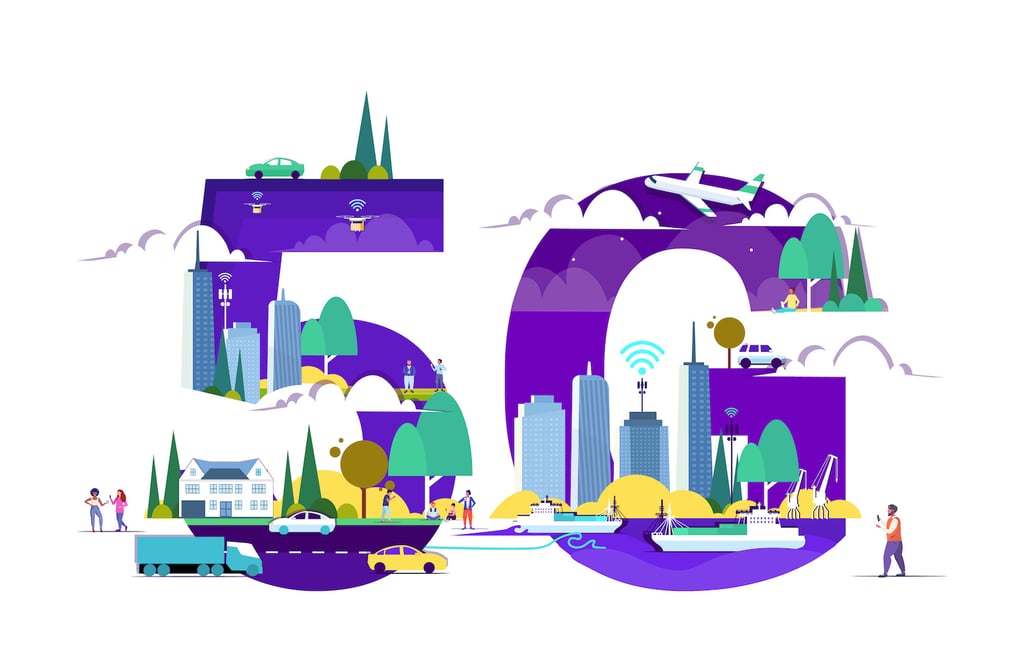
How the Internet of Things Will Change Our Lives

The biggest story this week is the fact that, for better or worse, the Federal Communications Commission has moved ahead on changing net neutrality.
Huge unknowns remain in how this will play out: The step taken this week really is just the beginning of the process. It is increasingly clear, however, that whatever emerges at the other side will represent a fundamental change from the Internet and broadband that we know. That alone is enough to make many people unhappy.
Here is an update on that and other interesting news and commentary from the week:
FCC Votes to Change Net Neutrality
The Federal Communications Commission this week moved a step closer to fundamentally changing the way in which the Internet is administered. The commission, in a 3-2 vote, approved a measure that would enable companies to pay more for faster access to subscribers. The move, which was expected, sets off a period of comments. The FCC still could reclassify broadband as a utility, but that seems unlikely.
The commission, according to Chairman Tom Wheeler, is proposing rules to protect companies unable or unwilling to pay for faster access, according to CNNMoney:
Under his plan, Wheeler said, broadband companies won’t be allowed to block legal content outright or slow traffic below a certain acceptable threshold of service. The FCC would retain the power to review the business arrangements of Internet service providers, invalidating them if they’re determined “commercially unreasonable.”
It’s unlikely that net neutrality proponents will be satisfied with those reassurances.
FCC Moves to Limit AT&T, Verizon Wireless in Auction
Net neutrality wasn’t the only sticky issue with which the FCC dealt last week. The commission also made an important decision on rules for the 2015 auction of 600 MHz spectrum that now is in the hands of television stations.
PCWorld says that the rules, if they stand, would limit AT&T and Verizon Wireless:
The FCC plan would set aside up to 30MHz of spectrum available in each region for smaller competitors if the bidding targets are reached during the so-called incentive auction, scheduled for mid-2015. AT&T and Verizon would still be able to bid on the unreserved spectrum. The spectrum available depends on TV stations giving up their spectrum in exchange for a portion of the auction revenues.
The commission didn’t name the carriers, but the limitations in rules would only affect Verizon Wireless and AT&T, according to the story.
Exponential Increase in Digital TV Homes
Broadband TV News reports that The Digital TV World Household Forecast says that the number of homes with digital televisions will increase by more than 1 billion between 2010 and 2020. The report, which is compiled by Digital TV Research and comprises forecasts for 138 countries, says that the total increase will be 185 percent. The progress has been significant:
Global digital TV penetration will reach 97.9% of television households by end-2020, up from 40.5% at end-2010 and 67.7% at end-2014. By 2020, 94 countries will be completely digital compared with only 12 at end-2013. About 124 countries will have more than 90% digital penetration by 2020.
Samsung to Compensate Workers, Families
On May 5, I wrote about reports tracing the health risks to workers in mobile device plants overseas. The main example cited in news reports was cases of leukemia contracted by two workers in a Samsung plant in South Korea. The women’s task was to dip components into a vat of chemicals. Samsung had denied the link and refused to provide compensation.
Samsung, undoubtedly stung by the reports, has reversed its position. BloombergBusinessweek reports that Samsung will compensate employees and their families and has offered its “sincerest apology.”
1,600 Experts Can’t Be Wrong
And, finally, comes a story about what a lot of smart people think the future will look like. The Pew Research Center polled 1,600 experts on the effect that the Internet of Things (IoT) and wearable computers will have by the year 2025. Eighty-three percent of respondents said that the IoT will “have widespread benefit effects.” However, Open Tech Strategies partner Karl Fogel said that percentage may be skewed because respondents are from a demographic that believe in the IoT and want it to have an impact.
Experts cited in the study pointed to likely services that the IoT will make common, but didn’t point to specific companies that they expect to thrive in this new environment.











